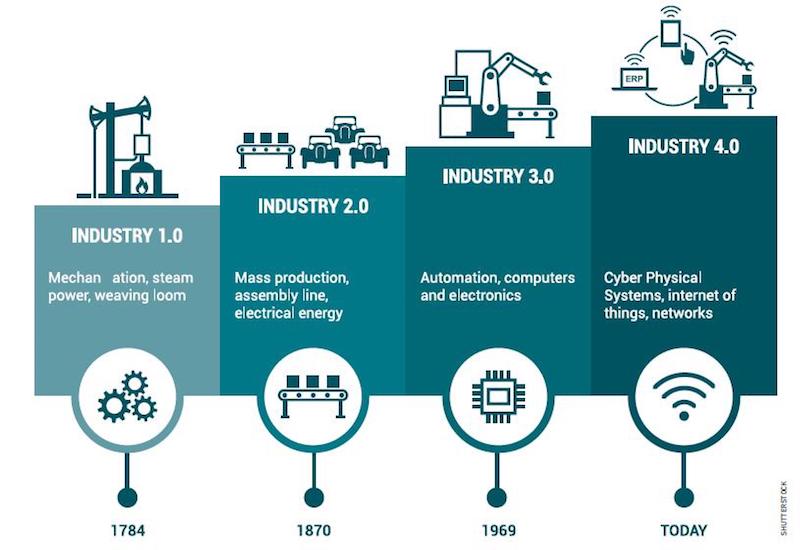
Right now, it’s essential to know the keys to Industry 4.0. The First Industrial Revolution was marked by the leap from manual production to machine-based manufacturing. The Second Industrial Revolution arrived with the development of mass production following chain production. The Third Industrial Revolution was characterised by the introduction of the computer and automation.
In the current fourth revolution, monitored robots controlled by perfectly designed algorithms come into play. These are some of the keys to Industry 4.0, the latest of these revolutions.
5 keys to Industry 4.0
The new technologies of Industry 4.0, ranging from mobile computing to cloud systems, have undergone major development over the last decade. They are now ready to be used as interconnected systems forming the keys to Industry 4.0.
The concept of Industry 4.0 is not a simple one. It involves many technologies and is used across a range of widely differing contexts. There are five things that define Industry 4.0. These are the five keys to Industry 4.0 that you should consider:
1.- Big Data
Big Data is a collection of data gathered from both traditional and digital sources inside and outside your company that represents a wellspring of continuous discovery and analysis. Nowadays, data is collected everywhere.
The challenge is that the industry is still in the process of developing methods to better interpret the data. This is one of the keys to Industry 4.0, which will change the way organisations devise their digital strategies and help teams make better and smarter decisions.
2.- Smart Factory
The Smart Factory concept defines the perfect connection between individual production steps that lead to a better end product. In the near future, machines and systems will be able to improve processes through self-optimisation. They will adapt autonomously through the combination of data and production, IT and manufacturing.
A Smart Factory allows the entire life cycle of products and production facilities to be planned and designed digitally. Intelligent machines coordinate production and global distribution. This future factory perfectly represents two of the keys to Industry 4.0: a seamless integration of high-tech tools and trained workers capable of developing and operating this technology.
3.- Cyber-physical system
Cyber-physical systems are integrations of computers, networks and physical processes. Computers and networks monitor and control physical processes with feedback loops. The physical system reacts by using software to interpret the action itself and tracks the results. Information is stored in computers and software embedded in devices. These computers are used to store information from an action cycle for subsequent machine learning.
4.- Internet of things (IoT)
The Internet of Things (IoT) is the connection of all devices to the Internet and to each other. As explained in Wired, “it’s based on cloud computing and networks of data-gathering sensors; it’s mobile, virtual, and instantaneous connection”.
This interconnectedness will allow smart factories to be created as systems use data to manufacture, move, report and learn at a much faster pace than we are used to. And more efficiently.
No comments:
Post a Comment